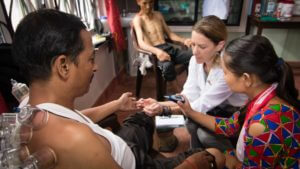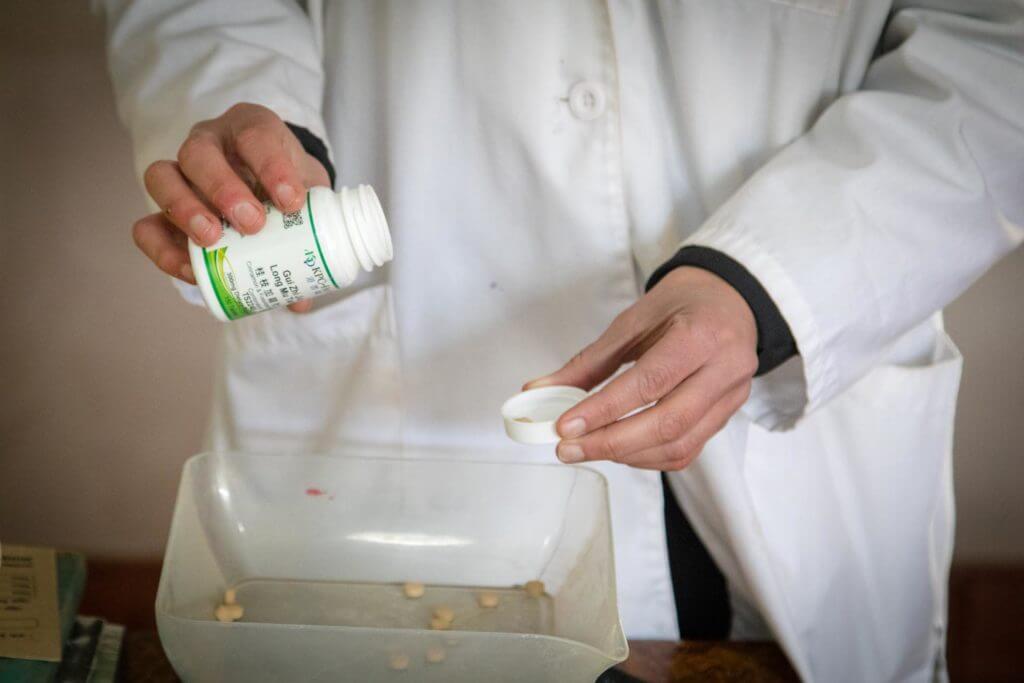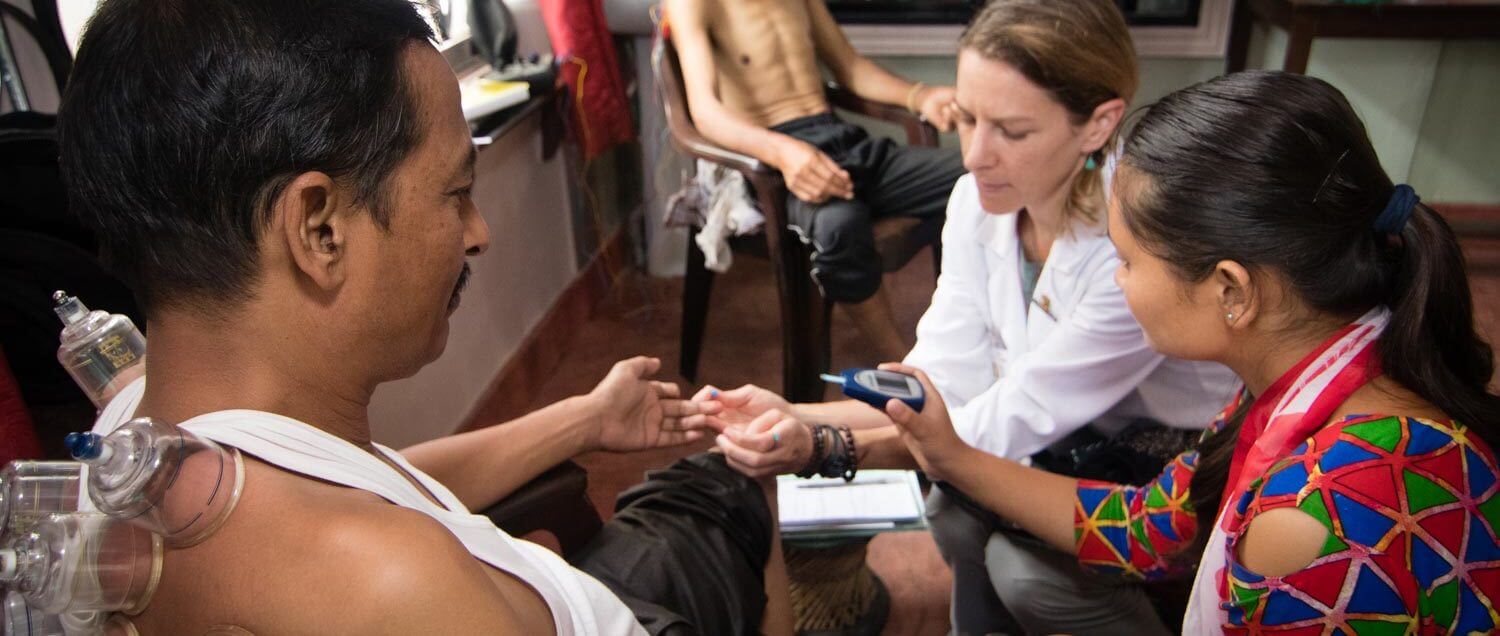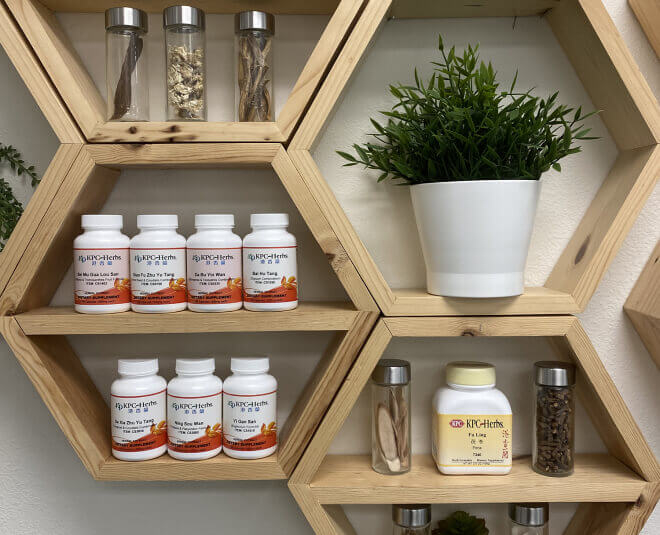 Traditional Chinese Medicine (TCM) industry leader KPC Herbs and the Acupuncture Relief Project have teamed up to bring high-quality herbal remedies to medical clinics in rural Nepal. As interest in TCM and herbal remedies grows, KPC Herbs is dedicated to increasing worldwide access to medical care by contributing its industry expertise and donating superior herbal products to the Acupuncture Relief Project.
Traditional Chinese Medicine (TCM) industry leader KPC Herbs and the Acupuncture Relief Project have teamed up to bring high-quality herbal remedies to medical clinics in rural Nepal. As interest in TCM and herbal remedies grows, KPC Herbs is dedicated to increasing worldwide access to medical care by contributing its industry expertise and donating superior herbal products to the Acupuncture Relief Project.
The Acupuncture Relief Project is a volunteer-based non-profit organization that began as a collaboration between the Oregon College of Oriental Medicine (OCOM) in Portland and the Nepal Health Research Council in Kathmandu. KPC Herbs chose to support this project because it accurately reflects the principles on which the company was founded — that quality, holistic care should be available to everyone. The mission of the Acupuncture Relief Project is to inculcate the development and growth of compassionate medical care providers in areas affected by poverty, disaster, or conflict with the goal of improving both individual and community health. Nepal is particularly important because poverty and conflict are prevalent in the region; many Nepalese citizens cannot afford basic needs such as housing, nutrition, and clothing. Minimal economic opportunities, the disenfranchisement of minorities, and a lack of social services have forced many to migrate to other areas to improve their circumstances.
KPC Herbs supports the mission of the Acupuncture Relief Project by donating therapeutic herbal products that are held to the  same standard of excellence as those cultivated by its founder, Tsai Liang Hai. The utmost care is taken in selecting the finest ingredients, ethically sourced with sustainable practices that adhere to strict quality assurance guidelines. “We take pride in all of the herbal products we produce,” says Rosemary Tsai, the Operation Director of KPC Herbs. “We do not hide behind our manufacturing processes and would never compromise on quality. We produce herbal products that we would not only give ourselves but also our family and friends.” All KPC Herbs products are assessed with the newest technology for quality and safety and manufactured with TGA, NSF, and HACCP certified processes so that they can better improve the health and well-being of consumers.
same standard of excellence as those cultivated by its founder, Tsai Liang Hai. The utmost care is taken in selecting the finest ingredients, ethically sourced with sustainable practices that adhere to strict quality assurance guidelines. “We take pride in all of the herbal products we produce,” says Rosemary Tsai, the Operation Director of KPC Herbs. “We do not hide behind our manufacturing processes and would never compromise on quality. We produce herbal products that we would not only give ourselves but also our family and friends.” All KPC Herbs products are assessed with the newest technology for quality and safety and manufactured with TGA, NSF, and HACCP certified processes so that they can better improve the health and well-being of consumers.
KPC Herbs and the Acupuncture Relief Project strive to improve the conditions of rural communities in Nepal by providing increased access to medical care. The Acupuncture Relief Project believes that acupuncture is a powerful healing tool that is able to treat a variety of conditions and can be extremely effective in managing pain and addressing issues that affect the digestive and neurological systems. For the communities in which they operate, Acupuncture Relief Project practitioners act as primary care providers and are the principal source of medical advice, employing acupuncture, naturopathic and allopathic treatments when appropriate. A great deal of research and assessment goes into determining the most effective care for patients, and referrals to specialists, hospitals, and other medical providers are made when necessary. Since acupuncture does not rely on the use of expensive equipment or medications, the Acupuncture Relief Project has been able to provide treatments for a variety of ailments, including diabetes, hypertension, digestive issues, asthma, and typhoid fever.
 KPC Herbs believes in the responsibility of companies to make a positive, meaningful contribution to the environment and society. The sustainable developments and projects that KPC Herbs participates in are incorporated into the company’s business model. Herbal ingredients are produced with sustainable farming practices, never include the use of endangered species, and are regularly tested for contaminants such as pesticides. KPC farmers voluntarily follow guidelines defined by the USDA, such as Good Agricultural Practice (GAP) & Good Handling Practice (GHP) to ensure that the herbs produced are of the highest quality possible. These practices allow KPC Herbs to build a positive relationship with reputable farmers who share the same values and support local economies. This benefits not only the consumer, who enjoys a superior product but also the environment as well. Sustainable farming practices are an investment in future generations, protecting local wildlife and contributing to the continued availability of high-quality herbs.
KPC Herbs believes in the responsibility of companies to make a positive, meaningful contribution to the environment and society. The sustainable developments and projects that KPC Herbs participates in are incorporated into the company’s business model. Herbal ingredients are produced with sustainable farming practices, never include the use of endangered species, and are regularly tested for contaminants such as pesticides. KPC farmers voluntarily follow guidelines defined by the USDA, such as Good Agricultural Practice (GAP) & Good Handling Practice (GHP) to ensure that the herbs produced are of the highest quality possible. These practices allow KPC Herbs to build a positive relationship with reputable farmers who share the same values and support local economies. This benefits not only the consumer, who enjoys a superior product but also the environment as well. Sustainable farming practices are an investment in future generations, protecting local wildlife and contributing to the continued availability of high-quality herbs.
KPC Herbs is a family-owned company that spans five generations, and the traditions on which it was built continue to this day. A commitment to honesty, integrity, and sustainability has been passed down to each generation, along with a desire to support impoverished communities and make a positive impact. KPC Herbs was founded on the belief that everyone deserves quality, holistic care and therefore supports the Acupuncture Relief Project to contribute to the improvement of medical services in Nepal.
The Acupuncture Relief Project is a volunteer-based, 501(C)3 non-profit organization founded by Andrew Schlabach and Leith Nippes after receiving their master’s degree in Acupuncture and Oriental Medicine from the Oregon College of Oriental Medicine (OCOM), one of the most recognized acupuncture schools in the United States. The Acupuncture Relief Project has provided more than 300,000 treatments to patients in rural Nepal since 2008 by providing safe and effective remedies that address both physical and mental concerns.
If you’d like to get involved with the Acupuncture Relief Project, visit the website to learn how you can donate or volunteer.
KPC Products hand-picks all of its community partners and does not welcome solicitation.
________
*Please note: These statements have not been evaluated by the FDA. This article is not intended to suggest specific treatments for patients or that any supplements mentioned prevent or cure diseases or problems. Before taking any herbs, all patients should discuss their options with a licensed practitioner, including any other medications the patient is currently taking, as there may be contraindications between pharmaceuticals and herbs.

